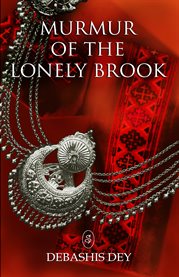Details
PUBLISHED
DESCRIPTION
1 online resource
ISBN/ISSN
LANGUAGE
NOTES
The story is a moving tale of life, love and hardship in a remote village and the rituals around a primitive God-fearing tribal clan following customs that date back thousands of years. Set near the hills of Tibet the family saga portrays traditions, and rituals of this remote outpost that has survived through multiple centuries in a beautiful natural setting with the vibrant sights, sounds and smells that make the people and their hopes and dreams and fears come alive. After marriage Nisha comes to a remote village in the mountainous Tibetan Border to lead a life among a nomadic clan who follow a simple lifestyle with customs and rituals overlapping Hinduism and Buddhism dating back to ancient times. Pravin is a private person by nature and is happy to marry Nisha, the girl of his choice. He leaves the family and his beautiful wife Nisha behind to look for a job in the city. Nisha is liked by everyone. She loves her husband Pravin dearly but also enjoys the infatuation from his brother Diwakar for whom she has a sisterly affection. She spends her days happily with a perpetually sad mother-in-law Parvati repenting on her past life sins, a short tempered father-in-law Shevak, a love-stricken sister-in-law Ria, a kid goat munching everything, a lamb with a baritone bleat and her husband's brother Diwakar lost in dreams. Shevak the father feels worried as after many generations his share of land is insufficient to divide between his sons. Pravin comes home much to the delight of everyone in the family. Nisha enjoys his company. Diwakar informs him that he is not interested in marriage except with someone like Nisha. He is also sure that there cannot be anyone like her. Pravin discusses with his mother Parvati the possibility of a common marriage-an ancient tradition still followed in this region in which both brothers share a single wife, Nisha. Parvati realizes that that this will keep the family together and the land undivided. She asks for his brother's opinion as it can happen only if both brothers are in agreement. The opinion of Nisha is immaterial as her consent is not required. Pravin proposes the same to his brother who gives his instant approval. Pravin then informs Nisha of his plan for a common marriage. It hits her like a blizzard. She feels betrayed by her one and only love. She feels outraged and torn between her values, dreams and tradition. She wonders how to split her love equally between the brothers and is horrified by the though of loving someone for whom she has a brotherly affection. She cannot protest or disagree as it will make her an outcast and the family will throw her away. Her universe crumbles and she feels humiliated and tormented with the new turn of events. Diwakar realizes Nisha is in pain and feels sorry for her. Nisha loses interest in life. The pink carpet of blossoming buckwheat, the yellow mustard fields which capture the wind in waves, the regimental glossy green of the pines on the slopes, the blue green river rumbling on the rocks, the fox-trot of wagtails-all fail to fascinate her like they used to. As ancient ways confront modern mores, Nisha will be torn between two worlds in this brilliantly observed novel of ancestral folkways and contemporary families. The marriage happens and she waits in apprehension for the imminent violation and outrage on her modesty. She gets tormented by the tempest in her mind trapped between her values and age old customs until she finds her own way when realization confronts perception and silence paints love with the golden glow of dying umber in a primal yet majestic setting. The story is inspired by the mountains that guard the villagers with their ancient wisdom, the flames of the primitive rituals which transcend the darkness of night, the smell of the pine needles on rain soaked soil and... by the murmur of a lonely brook
Mode of access: World Wide Web







